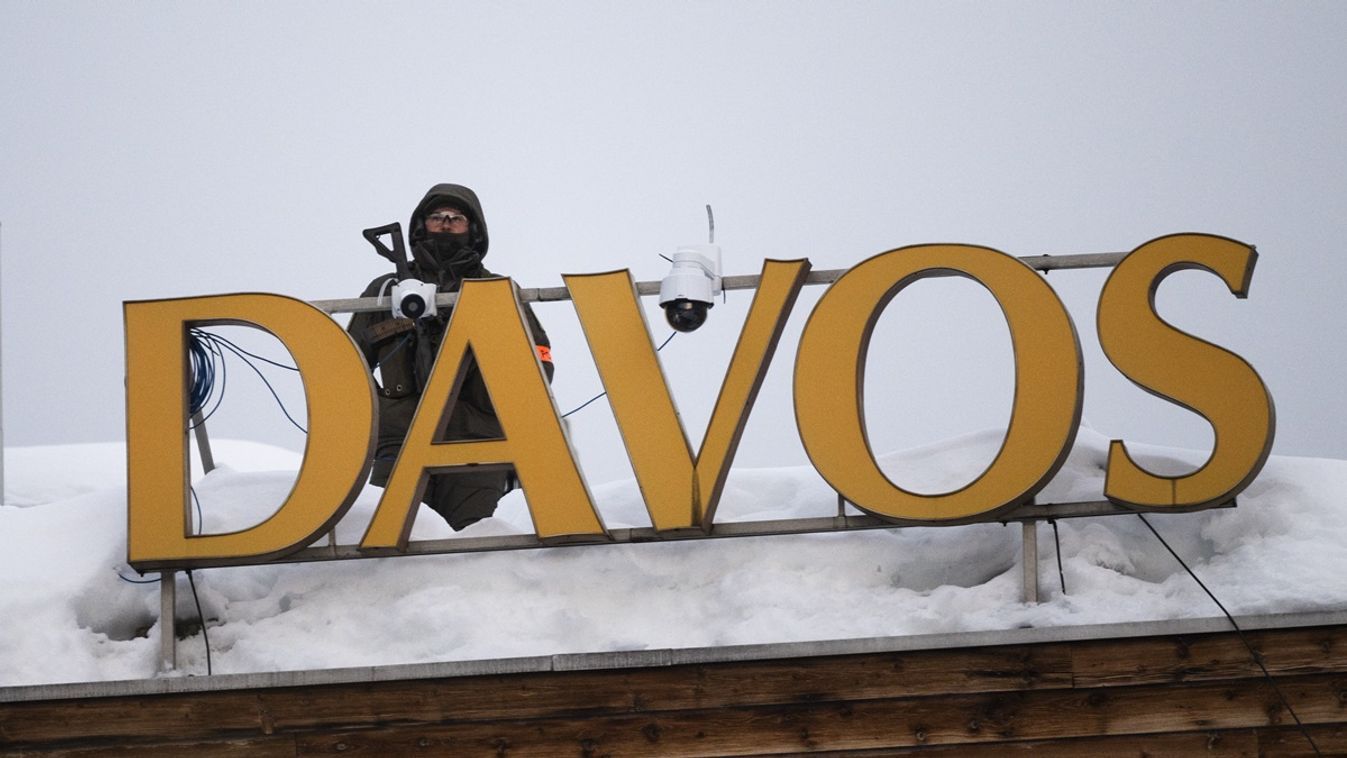Davos

Az a patologikus szerveződési mód, amelyben a global business prostituáltként tartja ki a politikát és a tudományt, eleve csak a semmibe vezethet.

Jan-Peter Balkenende served as prime minister of The Netherlands for eight years, from 2002 to 2010, and is now partner for Corporate Responsibility at Ernst & Young and a professor of Governance, Institutions and Internationalization at the Erasmus University in Rotterdam. Balkenende, whose experience offers insights about the responsibility of politics and economics toward society and the future, delivered a speech in Budapest recently about corporate social responsibility (or, CSR). We caught up with him to ask a few questions afterward.

You come from the Netherlands, one of the earliest capitalist countries boasting one of the oldest civic-oriented societies. What can we learn from Dutch history and its traditions regarding economic policy, business ethics and social responsibilities?
There are some very important characteristics: first, we always had an international orientation and were open-minded and tolerant towards others. This international mindset is very important if you want to do business in other parts of the world. Second: we traditionally had to work together in order to achieve things. The farmers had to work together to keep the water out by maintaining the dikes to protect themselves from floods. Later on we understood that employers, employees and the government must also cooperate with each other. We never had class conflicts which occurred in many other European countries. The third factor is to take the right steps when you talk about social responsibility. We have numerous companies which have been active in this field for a long time. It is not just the government which has to be responsible towards society. It is also your responsibility: how you contribute to make the world better. Companies have their own responsibilities towards society. Dutch companies are quite engaged in this activity. For example, at the moment, we have four companies that are super sector leaders in the sustainability index. DSM, Shell, Air France-KLM and Unilever are members of the Dutch Sustainable Growth Coalition. What you see in the Netherlands is that this idea is part of the DNA of our companies. I think other countries can benefit from these experiences.
You grew up in Biezelinge, a village in the Zeeland province in the south of the Netherlands, where Calvinist communities are very strong. Your father was a merchant, your mother a teacher. What did you bring from home, what traditions shaped your mentality?
Both my parents were very active in social organizations. My father took part in youth organizations and Christian broadcasting organizations. My mother was also active in young Christian organizations and in the Red Cross. When I was young I learned that it is important to be connected to society, to take responsibility. It is not just about your interests: it’s how you contribute to the bettering of society. That is what I learned from my parents. My father unfortunately died in 2008, but I remember when I was a child, he took care of Hungarian refugees after the Revolution of 1956. I learned that one has to use his talents for the right fields in society. This is one of the reasons why I became active in politics.
You joined the Christian Democratic party of the Netherlands (CDA), working as its financial spokesman for a while. Then you served as prime minister. Christian democracy, finance and business - what are the relations between this political ideology and economics?
Christian Democracy is linked to the concept of a responsible society. We have to define the role of the government according to Christian Democratic thoughts. Of course you need government, no one can exist without it. But I think, in Western democracies, we went too far. The welfare states have taken upon themselves too many responsibilities. We wrote a report called, “From welfare state to welfare society: underlining the responsibility of each human being and each company.” When we talk about sustainability issues, the question is, how can companies strengthen their social responsibilities and contribute to a better world? A company is not only there to generate profit (of course you must make profit), but also has the role of fulfilling social obligations. We talk about human rights, solidarity issues, energy efficiency, community engagement, relations with your clients and your employees. All these things are linked to the idea of a Christian Democratic society.
Sustainability. Many people use this word as a catchphrase. What is the real meaning and the real content of this idea according to you?
Sustainability stands for environmental issues, energy efficiency, human rights, and the relationship with your clients and employees. It is about integrity and transparency, and all of these elements can be found in the documents of the United Nations, OECD or in the ISO criteria. Why are they so important? We will have a world population of 9 billion people in 2050. We cannot go on with the current production and consumption methods. Sustainability is a prospect to do things the other way. Companies have to find solutions to current social issues. It has been on the agenda for decades, but something has changed. In the early days it was about intentions. Now it is about redefining your key performance indicators. It is about your business model and strategy. That is a change! And now measurement and reporting are more and more important: your story is not enough; you have to answer concrete questions on how the sustainability changes your company's operations.
In your speech you mentioned East Asia and Africa, which are booming these years. Can we learn from these regions in the field of CSR?
Africa is remarkable. If you want to do business on that continent, you really have to be able to show that you are contributing to its sustainability. I was in South Africa, and we talked about the development of the African continent. The conviction is really increasing that you have to do business in another way. What are you doing for education? What about the situation of children and women? What about the use of local products? International companies tend to take more care about the environment of the business in Africa, and it is already the conviction of the companies themselves, and not just the request of the local governments.
Some say that since the outbreak of the crisis in 2008, the whole system of the global economy fell into crisis. What is the role of corporate social responsibility in this situation?
There are many difficulties around financial institutions worldwide. On the other hand I also see some positive elements. Many companies are aware of the fact that they must be creative in finding solutions. There are also ethical questions regarding how you do business, what your intentions are, how you assume responsibility towards society. And evidence is really increasing towards the hypothesis that, if you choose sustainability, it will lead to better economic results. You need a winning mentality, you must be competitive, but you must link competitiveness with issues to entrepreneurship, innovation and sustainability. This is how we can create a stronger world economy. You need integrity, you have to define long term goals, share social values, and establish connections with NGOs and governments.
And what about laissez-faire capitalism: some people say that this is the solution to the current crisis.
The laissez-faire economy is just about making profit and hoping for an invisible hand to make everything work well. That is not my opinion. If you look at the behavior of companies that really integrated sustainability (Philips and Heineken, for example), these companies not only talk about profit, but also about how to reduce energy consumption, tackle the waste problem, what can be done to bring down CO2 emissions in a very concrete way. These companies work together with NGOs and governments. This is a different behavior.
You stated in your speech that there is also a moral crisis in today's economic world.
The crisis of 2008 was not just a financial but also a moral crisis: making money and more money, with strange and risky financial techniques, with perverted bonus systems and really short term thinking. In fact it jeopardized the whole financial system. Therefore, it is important to talk about transparency of finances and the role of financial institutions. Have we learned from what happened in 2008? How can we avoid something similar in the future? The moral crisis says something about your mindset. When your mindset is just about making money as soon and as much as possible, at any cost, then you will have moral difficulties. If you make money for yourself, that is a moral crisis. I think people are now discovering that the short term thinking with just profit on their mind is not the way to act. The way out of the global crisis is also connected to the values of society. Now more and more companies strive to define and communicate their values. When you declare and follow values (integrity, transparency, sustainability), it says a lot about your responsibility towards society.
You are now in Hungary, in eastern Europe. You have been here many times in the last two decades and know our history and circumstances. After the years of transition, "wild capitalism" flourished, mixed with long years of economic and social crises. Entrepreneurs without sufficient capital are struggling month-by-month to survive. What is your message to them when it comes to the importance of corporate social responsibility?
If you want to be successful – and entrepreneurs want to be – you have to have an international orientation to export your goods. You have to integrate sustainability into your business strategy so you make things better than others. If you are innovative and have a winning mentality, connected with sustainability, you can be successful in the present and future. You can see evidence for that idea in many parts of the world.











